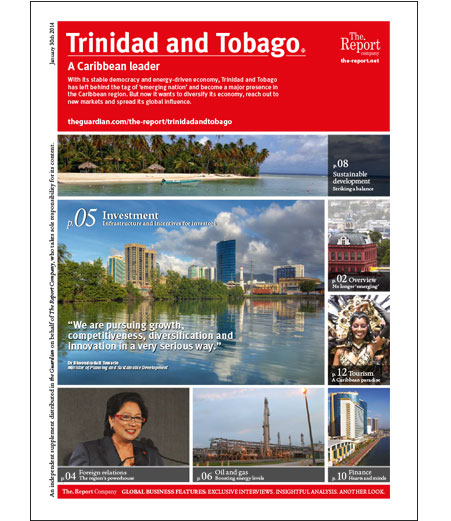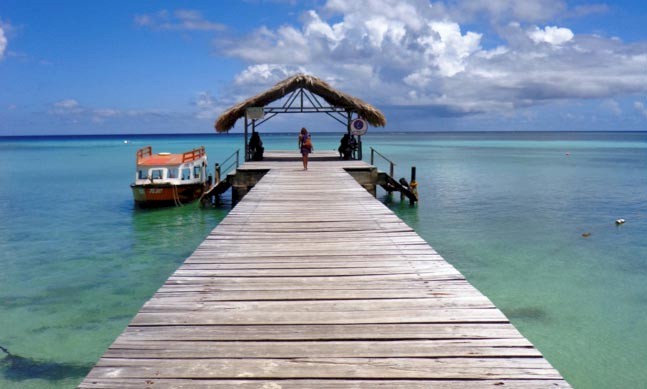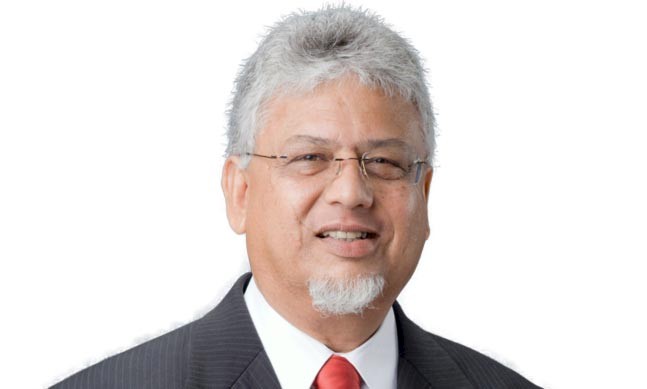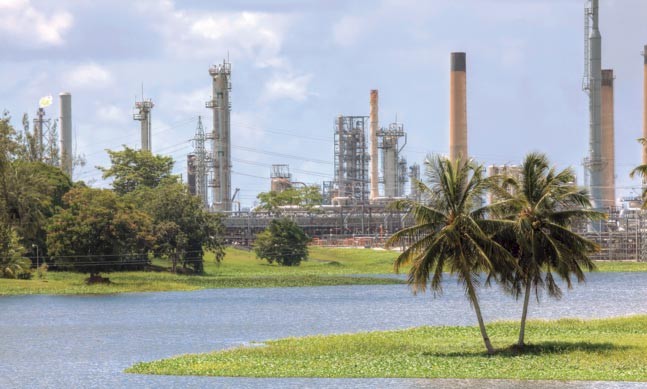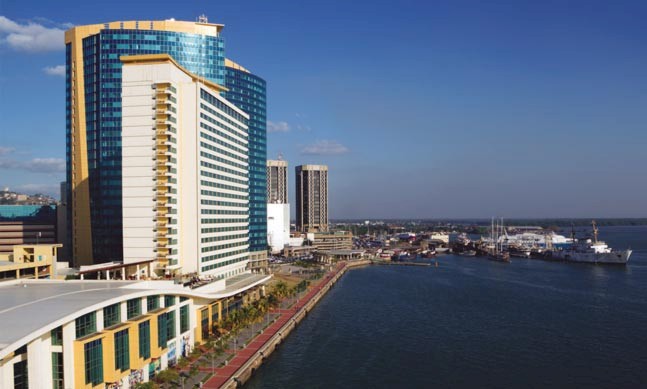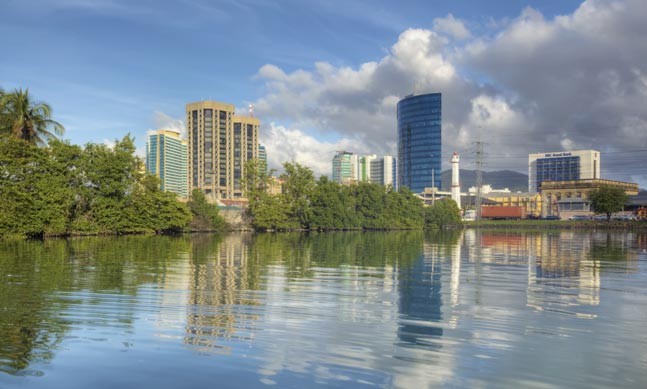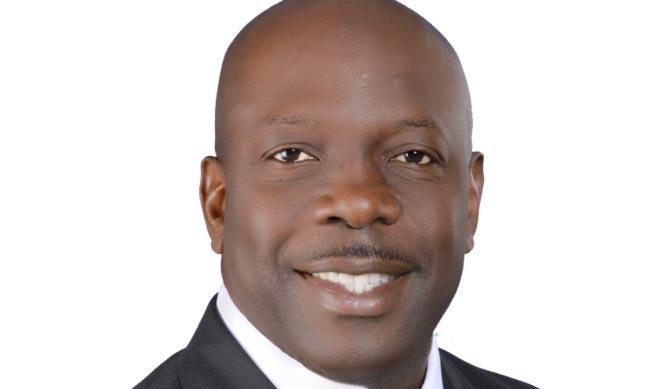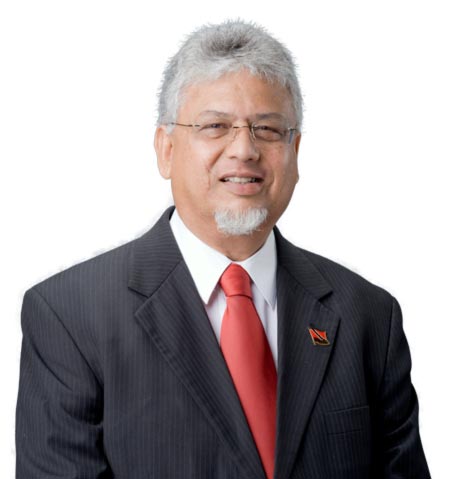
Dr Bhoendradatt Tewarie spoke to The Report Company about his ministry’s role in the transformation of Trinidad and Tobago into a diversified and knowledge-intensive economy, while maintaining a sustainable path of development.
The Report Company: What have been your main priorities since joining government?
Dr. Bhoendradatt Tewarie: The first thing for us was to translate our manifesto promises into a genuine medium-term framework for execution in the country. Together with my very able staff at the ministry of planning and sustainable development we produced a medium-term policy that identified five priorities for the country and then linked those priorities to a diversification strategy that was based on the development of seven sectors and was also linked to the development of five geographical growth poles in the country.
The first commitment for policy change was in the context of developing a spatial strategy for Trinidad and Tobago which would delineate land use policy within the framework of sustainable development. That was the second thing that we attempted to do and we are now in the closing stages. We have had eleven consultations on the spatial strategy and on the basis of those consultations we have revised the strategy. We are taking to parliament next month the planning and facilitation of development bill which will govern the development of land and all development in the country within a framework of sustainable development. It will devolve a lot of authority for planning to the local government councils of the country. We have also, in developing the national spatial strategy, developed plans for 585 communities in Trinidad and Tobago. We have not had a national physical development plan for Trinidad and Tobago since 1984, so when this bill is passed in parliament it will be the first new one. The third thing that we are focussed on is procurement legislation. The procurement legislation has not been revised since 1961, so we are now at the stage where the legislative review committee is finalising the procurement bill that will come to parliament. We expect that in September that bill will be debated.
Another thing that we did was to complete the first census since 2000 and do the first demographic report for 2011 so that we now have a statistical basis for planning and policy making. This allows us to strategise in a much more serious way based on very up-to-date data.
We are pursuing growth, competitiveness, diversification and innovation in a very serious way; there are four economic committees that are managed under the jurisdiction of the cabinet. One is the energy committee which is chaired by the prime minister but is driven by the minister of energy, another is the investment committee which is chaired by the minister responsible for investment and trade. The other is the public-private partnership committee which is focussed on developing PPPs for investment and development purposes and that is chaired by the ministry of finance and the fourth one is the diversification committee which is chaired by me and involves the other ministries.
TRC: What is your assessment of the current economic situation?
BT: We have been very happy to see that since the crisis of 2008-2009 we have moved from a 4.6 percent decline to just over 1 percent growth in 2012. We are projecting approximately 2.5 percent growth in 2013 and we are looking at a higher level of growth in 2014. In investment terms, in 2012 we attracted the equivalent of about US$2.5 billion of foreign investment. Over the next year or two the intended investment by the major international oil and gas players is approximately US$4 billion. The confidence is building back; we are seeing a stimulation of the construction industry, we are seeing a growth in the services sector, we are seeing interest in joint venture arrangements and we are also seeing interest in growth strategies by existing companies in Trinidad and Tobago, focussed on export expansion.
TRC: How are you working to improve Trinidad and Tobago’s competitiveness and promote economic growth?
BT: We are speeding up the rate at which people can invest in land and we have streamlined the town and country planning approval process. We have pulled together the various elements under one umbrella to facilitate the construction of complex mixed-use developments by the private sector and we are trying to break the bureaucracy down and do whatever we can to facilitate business development and growth.
We are creating the conditions for a lot of decentralisation and we have initiated a port rationalisation study to strategically determine how we might go about the development of the ports because we are looking seriously at the implications of the developments in the Panama Canal and we are also looking at the expansion and the development of the maritime industry in Trinidad and Tobago.
TRC: The Caribbean Industrial Research Institute (CARIRI), which falls under your ministry, recently secured investment from the World Bank. What are CARIRI’s main objectives?
BT: CARIRI has had a good record in terms of its support of industry in the country and its application of research but we have over the last two years changed its orientation a little bit, diversifying its focus and strategic intent. CARIRI is very involved now in the development of products linked to agricultural production that can be market tested and developed as a business for a global market. It also has programmes to nurture entrepreneurs and help them to be successful in the development of their business. CARIRI is now also focussed on innovation and it received World Bank funding to facilitate innovation in climate change.
There are other activities under this ministry that are very significant. For instance, with the Chaguaramas Development Authority we are going for a combined local and international development strategy for Chaguaramas, which will incorporate a high level of ecological sensitivity. We see it as a major growth centre for Trinidad and Tobago. We’re developing entertainment and expanding the boardwalk and building a cycle track there. The focus is on leisure, entertainment and activity-based tourism against a backdrop of an ecologically rich environment.
“We can be a place in which there is greater harmony between ecological concerns, economic prosperity and the building of social and cultural capital.”Post This
TRC: What are you doing to reduce traffic problems?
BT: We developed a water taxi system on weekends; the boat can take about 500 people at a time in very comfortable conditions. We’re also looking at a combination of things in phases: the possibility of adding a third lane to the existing road, the possibility of having a PPP investment in a causeway, and we are even considering the possibility of cable cars. We’re not looking at any one solution; we’re looking at a combination of solutions to the access issue in Chaguaramas.
TRC: How is the ministry involved in issues of sustainable development at the global level?
BT: We’re very involved. We have a very strong consultation on Small Island Developing States (SIDS) which we have prepared and submitted to the UN. We have also had an equally serious and very participatory consultation on the post-Millennium Development Goals agenda, and we’ve completed a country report and submitted a document to the Rio+20 conference, ‘Working for Sustainable Development’ in which we identified ten specific challenges for Trinidad and Tobago.
As islands we are much more vulnerable to climate change and its attendant impacts and so we have identified the challenges as climate change and sea level rise, natural and anthropogenic hazards, the management of waste, coastal and marine resources, freshwater resources, land resources and energy.
In energy, we have support from the EU for a wind-farm project and we have a major project going on now which is funded through the IDB on the possibility of developing the production of solar products for global markets.
We are also looking at tourism resources very carefully. While we have the sun, sand and sea we are also developing in a very systematic way the creative industries and also the heritage industry.
We try to take an integrated view and a holistic approach to how we manage the sustainable development issue. Our main challenge, being an energy-rich country and having the transport infrastructure that we do is that most people travel by car, but what we are doing is moving to conversion to compressed natural gas (CNG). CNG conversion makes sense for us, but we are also looking at alternative energy like wind and solar. In the 2011 budget we offered a number of incentives for the use of alternative energy but those have not yet been taken up in a very intensified way.
TRC: What would be your main objective during your time in your role?
BT: We want to see a more balanced approach to development in Trinidad and Tobago. We want economic prosperity with greater equity in the system and we want to systematically move to eliminate poverty. Over the last 2 years we have reduced poverty from about 18.7 percent to about 14.9 percent, so we’ve made some strides with that. The other thing that we want to do is that we want to conserve a lot of our land space. The good news is that we have increased forest cover in the country by 3 percent over the last ten years. We want to manage physical development in such a way that we will link industrial development and diversification growth to the communities and provide jobs where people live. We are also going to intensify development in the areas in which we now have an urban footprint and rehabilitate some of those areas such as Port of Spain and Chaguaramas.
My vision for the country is that over the next ten years we can be a place in which there is greater harmony between ecological concerns, economic prosperity and the building of social and cultural capital. I want us to become a place that is known in the world as a place of peace and harmony and a good quality of life and enjoyment. My goal is increasing prosperity, participation and inclusion.
TRC: What’s next for the ministry? What activities are planned over the next year?
BT: In October 2014 we are hosting the Americas Competitiveness Forum in Port of Spain. We expect to host investors, business leaders and political leaders from all the countries in the hemisphere and also from Europe, Asia and Africa. We have chosen as our theme the human imagination at work, driving competitiveness and powering innovation. We are going to build the whole strategy leading up to that conference focussed on innovation-led growth and development. We hope to take a holistic view of what we are doing now and the achievements that we have made and try to focus that on building innovative capacity and consciousness about innovation.


